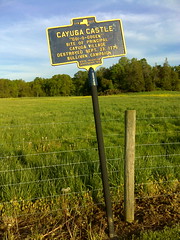The lack of equivalent term would then seem to have something to do with the fact that as a synthetic language German offers more options for descriptive single terms than does English. But as mentioned, none of the cited terms imply the withdrawal aspect of a raid. The contemporary term is descended from the Scots term for ‘road,’ so ingress and egress are wrapped up in the etymology. [LINK to the relevant OED article for anyone interested.]
The Pancho Villa Expedition, maybe? But given the duration I guess you get into the issue of whether you should differentiate a strategic raid from a punitive expedition. I was actually lead to this forum by my effort to interpret 17th and 18th century military journals associated with European punitive expeditions against American Indian groups (the Sullivan Expedition against the Haudenosaunee is perhaps the most widely known, and still widely discussed by the descends of both sides). These would involve multi-week incursions to destroy structures and crops. It was clear to both sides that the expedition was not capable of any long term occupation of the territory, but whether the occupation was brief enough to qualify as a raid I could not say. And it may not really matter to anyone but the most pedantic, of course.I don't think such a case exists.
In the 17th and 18th century Eastern Woodlands warfare often took the form of a type of raid referred to in English as “cutting off.” In one of his books Wayne E. Lee has a good summary of cutting off (he and I disagree on a couple of the details in his summary, but it is very well done regardless). One example which impresses me greatly because I have seen the terrain (and anyone on the forum who has been to Mount Yonah almost surely has, as well) is the c. 1720 Creek raid on the eastern Cherokee settlement shown below. While the settlement’s men were away to trade a Creek war sacked the community and made off with those women and children not killed before a response was mounted from the settlement at the western end of the valley. There is documentation of the killing of three traders residing between the towns which I would assume was the work of scouts (is “perimeter support” the correct term?). The same documentation makes clear that the attack took place under cover of darkness, but am I wrong that in lieu of rainfall the attack would have been audible at that proximity?











Bookmarks